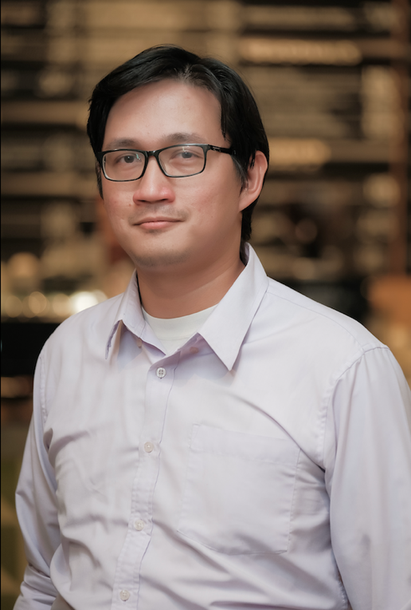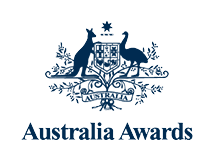Putting the “Human” Back in Health Care
 Three years after earning his Master of Public Health from the University of Melbourne in 2015, Dr. Jose Rafael “Raffy” A. Marfori, together with like-minded colleagues, is setting up a company in Manila called “health&human”, which specialises in primary care.
Three years after earning his Master of Public Health from the University of Melbourne in 2015, Dr. Jose Rafael “Raffy” A. Marfori, together with like-minded colleagues, is setting up a company in Manila called “health&human”, which specialises in primary care.
“A primary care physician is sort of your guardian angel throughout all life stages and all health system contacts,” Raffy explained. Primary care addresses most health conditions. It is generalist in orientation, which means primary care doctors are in the best position to coordinate the care of a patient. They refer the patient to a specialist only if needed. Moreover, primary care systems provide continuing care. Even if the primary care doctor refers the patient to a specialist, he or she remains involved no matter where or from whom the patient receives treatment.
The goal of health&human is to improve people’s health not just through medical services – medical consultations, laboratory tests, treatments – but also in other parts of daily living. This means that a person gets the care he or she needs even after leaving the doctor’s clinic.
“To patients, we are a network of primary care providers and health coaches who will help them achieve their health goals. To doctors, we are an extension of their practice. To companies and health management organisations (HMOs), we are an outsourced primary care and wellness program,” he said.
Through health&human, Raffy hopes to accelerate the Philippines’ transition to primary care-oriented systems. Such systems would address what he describes as “fragmentation” and “maldistribution” in Philippine health care. “It is fragmented in the sense that the parts of the Philippine health care system are working separately. Being uncoordinated, it is more expensive and less efficient. That’s hard for patients,” he said. “It is maldistributed in the sense that it doesn’t match needs. It’s concentrated in some areas, sparse in others,” he added.
‘Unleashed’
Raffy’s Australian experience and education provided inspiration for health&human. “First, primary care systems are stronger in Australia. Second, health is everywhere in ways that go beyond medical services, especially in Melbourne,” he said. Technically, primary care covers medical services only; anything beyond clinics and hospitals is primary health care, which is much bigger. But Raffy believes health&human can – and should – bridge the two.
While in Australia, he lived in Melbourne – the most liveable city in the world according to The Economist Intelligence Unit – which was conducive for the study of public health. He cited the city’s clean environment, wholesome food, bike trails, and vibrant civic sector as factors that positively influenced the health of Australians. “Health is influenced more by these day-to-day factors than by medical treatment as we know it.”
The education he received from the University of Melbourne unleashed, as Raffy put it, his potential for working in the field of public health. His professors and classmates inspired him, and the courses he took opened his eyes to the many aspects of health care. Aside from giving him the tools he needed, his Australian education strengthened his resolve to take the road less travelled, giving him a sense of empowerment and creativity to attempt career moves not typically expected of medical graduates.
“When I looked at the university’s innovative and powerful courses, I said to myself, ‘This is why I had to leave the country for a while—to unleash this potential for public health in the Philippines,” he recalled.
‘Health is a right’
Invigorated by his experience in Australia, Raffy returned to Manila where he joined Philippine Primary Care Studies (PPCS)—a research program on primary care of the Department of Health, PhilHealth, and the University of the Philippines. PPCS pilot tests changes in the Philippine health care system towards primary care. Conducted in urban, rural, and geographically isolated and disadvantaged areas, it forms primary care teams out of doctors, nurses, midwives, and barangay health workers, among other innovations. It allows PhilHealth insurance benefits to “follow” patients real-time across separate clinics, pharmacies, and laboratories. It pays for a wide range of services regardless of the patient’s diagnosis – a design once considered unthinkable in Philippine health financing.
PPCS was also the host organisation of Raffy’s re-entry action plan (REAP), which focused on the development of a pilot study protocol for the most challenging PPCS site or a geographically isolated disadvantaged area. This protocol describes how PPCS would design and simulate a working primary care system that would move the population towards universal health care.
Raffy completed this protocol and it is now being financed by at least two national government funds. “We're about to launch the implementation year in Bulusan, Sorsogon after much preparation. Its findings will teach the country a lot about how our health systems can or should evolve. For me, the REAP was quite the undertaking, one that taught me a lot for health&human and my other roles,” he said.
Raffy’s inspiration from Australia and his involvement in PPCS, coupled with equally passionate comrades, jumpstarted the development of health&human.
“Our goal is to bring people’s understanding of health closer to how it’s been defined since 1946: that health is not just the absence of disease but a state of complete physical, mental, and social well-being,” he said, quoting the WHO definition of health.
With health&human, Raffy and his team will be that much closer to fulfilling their dream of putting the “human” back in health care.

